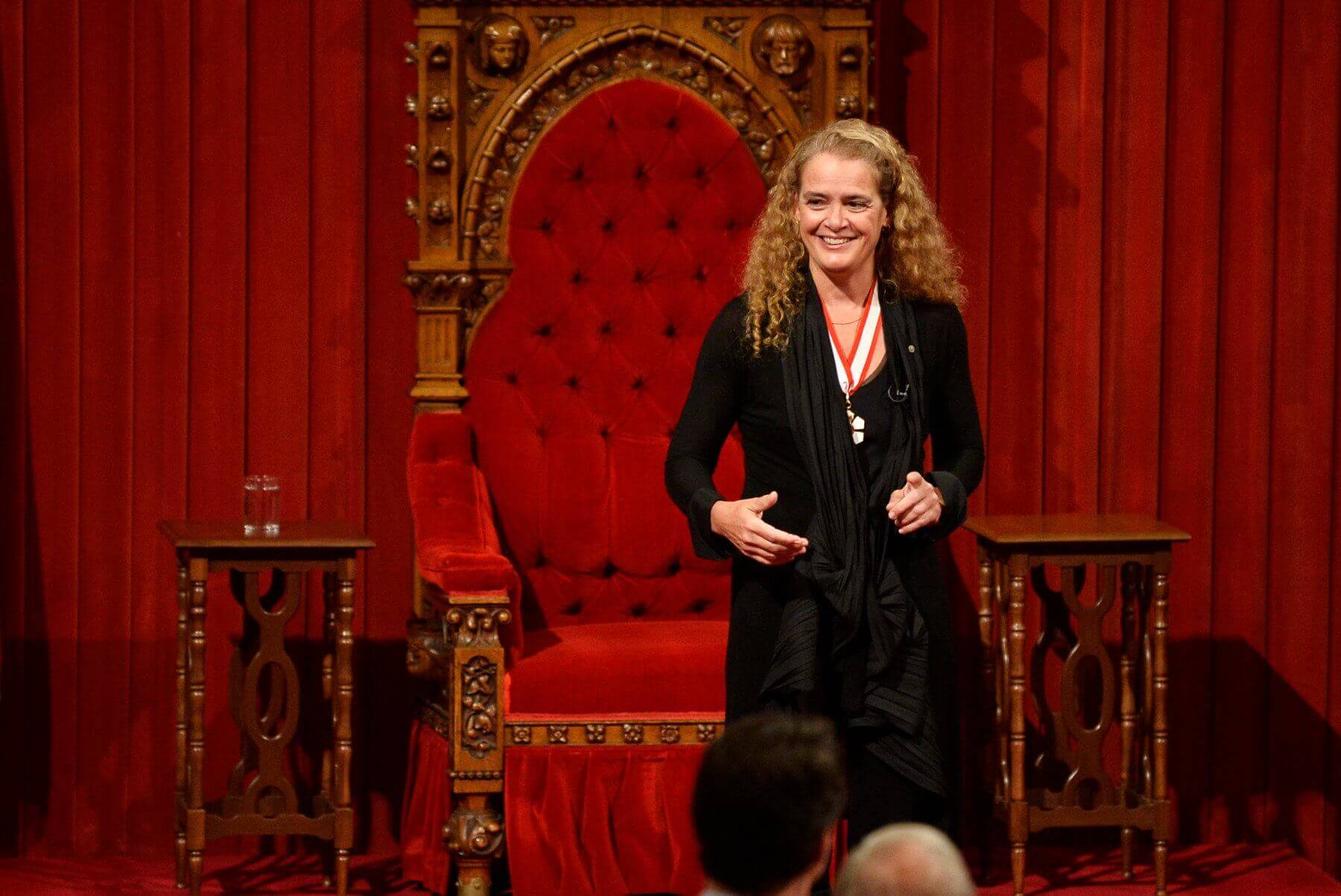Canadian Governor General Julie Payette’s resignation has initiated fervent conversations about largely honourific title. Payette resigned last Thursday following the conclusion of a workplace review by the Privy Council Office, which corroborated accusations that she had created a ‘toxic’ work environment at Rideau Hall that was characterised by harassment and verbal abuse. Prime Minister Justin Trudeau has also received criticism for failing to adequately vet Payette for the prestigious position, with reports that the PMO did not consult with her previous employers —Montreal Science Centre and the Canadian Olympic Committee—about her temperament.
In her resignation letter, Payette apologised for not facilitating a “healthy and safe work environment” and said that she was vacating her seat because “Canadians deserve stability in these uncertain times”. She will be joined in leaving Rideau Hal by her secretary, Assunta di Lorenzo.
The investigation was first launched last year after several public servants and former employees claimed that Payette “belittled, berated, and publicly humiliated” staff at Rideau Hall. The President of the Queen’s Privy Council for Canada, Dominic LeBlanc, said that the investigation had uncovered “disturbing” and “worrisome” elements in her leadership.
In Payette’s stead, the Chief Justice of the Supreme Court of Canada, Richard Wagner, will serve as the interim Governor General, until PM Trudeau appoints a replacement, at which point the Queen must approve his recommendation, which has historically been all but a formality. In fact, Trudeau has already spoken to Queen Elizabeth II, and the Buckingham Palace has released a statement saying: “The Queen has been kept informed of developments”.
Against this backdrop, Conservative Leader Erin O’Toole has called on the Trudeau-led Liberal government to “consult opposition parties” before naming Payette’s replacement, decrying that the position had been “sullied”. Meanwhile, New Democratic Party (NDP) leader Jagmeet Singh called on Trudeau to apologise for not sufficiently looking into Payette’s background and credentials.
In fact, aside from the opposition, the ruling government has also faced criticism from the public for not properly vetting Payette, given that an investigation into her leadership cost taxpayers $393,361.13. Three unnamed sources told The Globe and Mail that the government “ploughed forward” with Payette’s appointment “without any real checks” because their vision was “blurred” by her ‘star quality’ as an astronaut and the fact that she was recommended by former PM Jean Chrétien.
Trudeau has not commented on the opposition’s remarks but said that this situation “provides an opportunity for new leadership at Rideau Hall to address the workplace concerns raised by employees during the review.” He also hinted that the vetting process will be made more rigorous, saying, “We are looking right now at processes that can be strengthened as we move forward.”
Controversy has also erupted over the fact that, despite her resignation, Payette is set to continue receiving a pension and a ‘regular income’ for the rest of her life. NDP leader Singh, for instance, has said that this would send the wrong message, as it would “reward” and possibly even “encourage” the behaviour that Payette is accused of.
Against this backdrop, some experts, like The Washington Post’s JJ McCullough have suggested that this “ceremonial” role should be removed. The Governor General is tasked with “summoning, proroguing, and dissolving parliament”, “setting out the government’s program by reading the Speech from the Throne”, and “giving Royal Assent, which makes acts of Parliament into law”. However, given that the Governor General merely serves at the behest of the PM and rarely goes against his or her recommendations or instructions, and has little to no autonomy, the position is largely symbolic and an homage to Canada’s increasingly tenuous link to the British monarchy. In fact, the last time a Governor General refused to provide Royal Assent was way back in 1927.
Such criticisms are unlikely to be heeded by the Canadian government, however, given its longstanding commitment to the British Commonwealth and its interest in maintaining friendly relations with the United Kingdom. Therefore, in the short-term, Canada, and more specifically the Trudeau government, must seek to re-engender trust and in both the vaunted position of the Governor General and the government as a whole.
Canadian Governor General Payette’s Resignation Ignites Criticism of Trudeau Government
Governor General Julie Payette resigned after an investigation into workplace harassment claims, drawing criticism of the Trudeau government and questions about the value of the honorific position.
January 26, 2021

IMAGE SOURCE: MATTHEW USHERWOOD / iPOLITICSThe now-former Canadian Governor General Julie Payette
